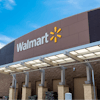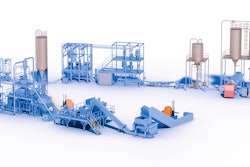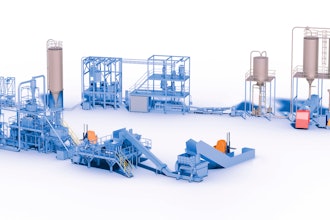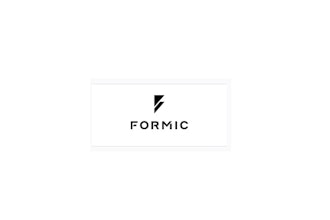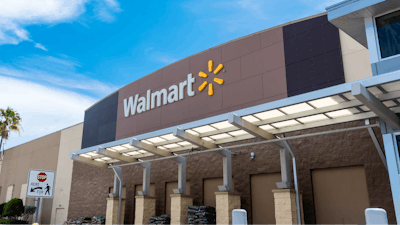
As inflation continues to squeeze the wallets of the American consumer, private labels, which are inherently more profitable for retailers, are achieving deeper market penetration. Private labels don't just benefit cash-strapped consumers; they're key to survival in grocery retail's notoriously thin margin business, as store brands are generally more margin accretive than their national branded counterparts.
According to The Private Label Manufacturers Association's 2024 report, the store brands industry boasted all-time highs in both unit sales and dollars sales. Store brand sales totaled $236.3 billion in 2023—a 4.7% increase from 2022.
Besides inflation, Aldi's recent dominance has warmed many Americans up to buying private-label groceries. After Aldi's acquisition of SEG, the discount grocery giant will soon operate 2,800 stores across the country. Even though it may not be their primary grocer, a quarter of all Americans regularly shop at Aldi, which primes the market for the success of new private-label players. Aldi, along with Lidl and Trader Joe's, have also pushed the boundaries of the private label classification—no longer are store brands merely trade-down commodity items.
The trade-up tier of store brands, offering more sustainable, organic products, is a space poised for growth. These products appeal to an ever-expanding intersection in the Venn diagram—customers who are both frugal and health-conscious. With Walmart's launch of Bettergoods, the retail giant looks to break into this premium store-brand tier, which players like Whole Foods and Kroger have historically dominated.
Walmart is traditionally known as a price player. The brand's private label strategy does not break from this mold—Great Value, Sam's Choice, and now Bettergoods cater to slightly different markets, but above all else, they leverage their price advantage.
Walmart's Bettergoods play is savvy for two reasons: it positions the company to offer more trade-up options while catering to trade-down activity common in a recession. While it may not be a conscious decision, Walmart appears to be firing back at Target for its recent launch of its trade-down range, "Target Essentials." Walmart is gunning for Target's customer base—those who can afford to spend a little more than the typical Walmart customer. This push is also youth-oriented, as younger millennials and Gen-Zers make up a significant portion of the premium store brand market.
However, Walmart's attempt to capture a higher-income, younger customer base is far from guaranteed. Convincing customers to buy premium store brand goods will be difficult, given Walmart's long-standing reputation for offering value products rather than high-quality ones. To remedy this, Walmart must prioritize branding and customer education. Since it's uncertain whether Walmart will attract higher-income, younger customers, their Bettergoods initiative serves as a hedge. Even if they don't fully achieve this goal, they'll likely still boost the basket size of their existing customers.
To succeed, Walmart needs to be realistic about its expectations—siphoning customers from Target, Aldi, and even Trader Joe's is possible, yet winning over Whole Foods customers requires a radically different model. Walmart cannot compete with top-tier grocers in terms of perceived sustainability, freshness, and sophistication. Therefore, edging into Trader Joe's market seems like a reasonable end goal—these customers value unique and worldly flavors but are uncompromising in price.
The fate of Bettergoods also hinges on the future of major American CPG companies. The Cokes, the Pepsis, and the Frito-Lays will need to defend their position and eventually push back at private labels' aggressive expansion by changing assortments, optimizing production, slashing prices, reducing pack sizes, or offering new promotions.
 John Clear, a senior director in the consumer and retail group of global professional services firm Alvarez & Marsal.
John Clear, a senior director in the consumer and retail group of global professional services firm Alvarez & Marsal.
For long-term profitability, Walmart should expand its private label options yet maintain strong relationships with CPGs. By complementing store brands instead of solely competing with them, retailers can diversify their offerings and enhance margins while also providing customers with a wide range of options.
John Clear is a senior director in the consumer and retail group of global professional services firm Alvarez & Marsal and was formerly a senior director of buying for Lidl US LLC. He can be reached at [email protected].



